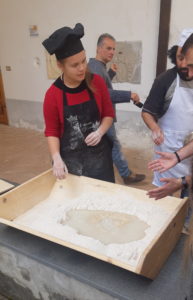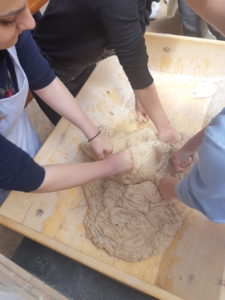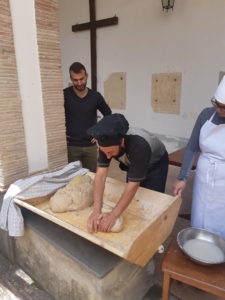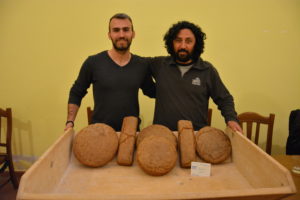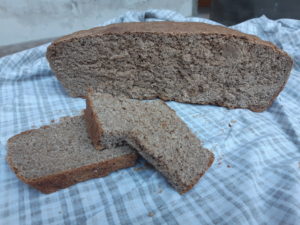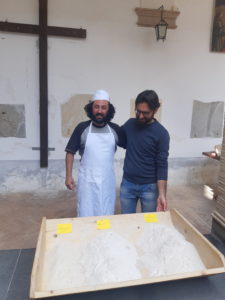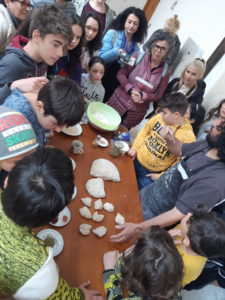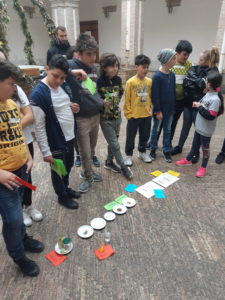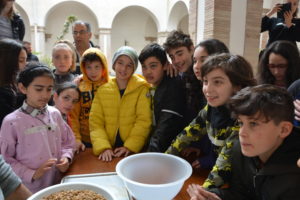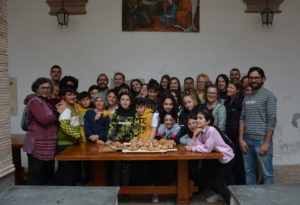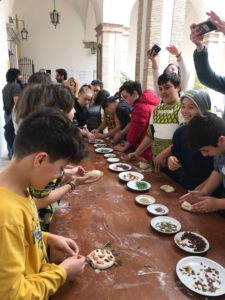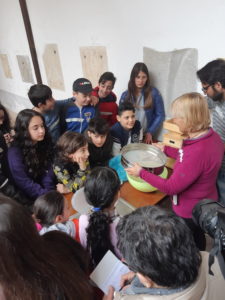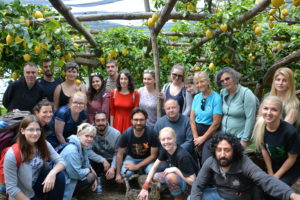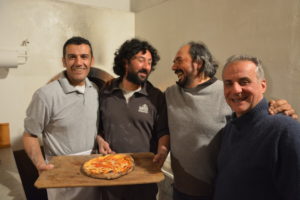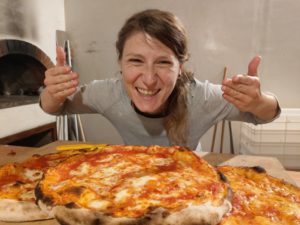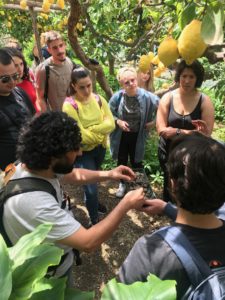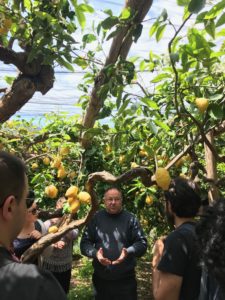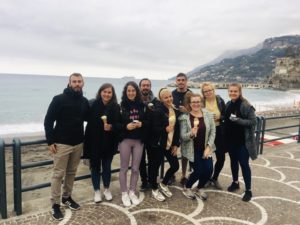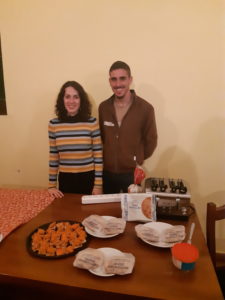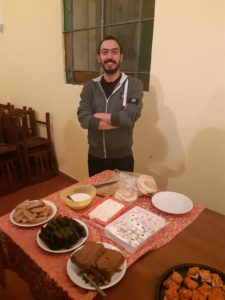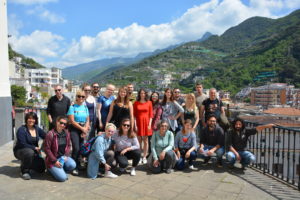Young europeans from 10 different countries come to Tramonti to explore various different methodologies of bread-making
From the 3rd-11th May the Erasmus+ training course BREADucation took place in Tramonti, Italy. The project was organised by the Club per l’UNESCO di Amalfi and ACARBIO from Italy together with Solidarity Tracks from Greece. It brought participants from 10 different European countries; Italy, Greece, Turkey, Macedonia, Portugal, Spain, Estonia, Poland, Czech Republic and Croatia.
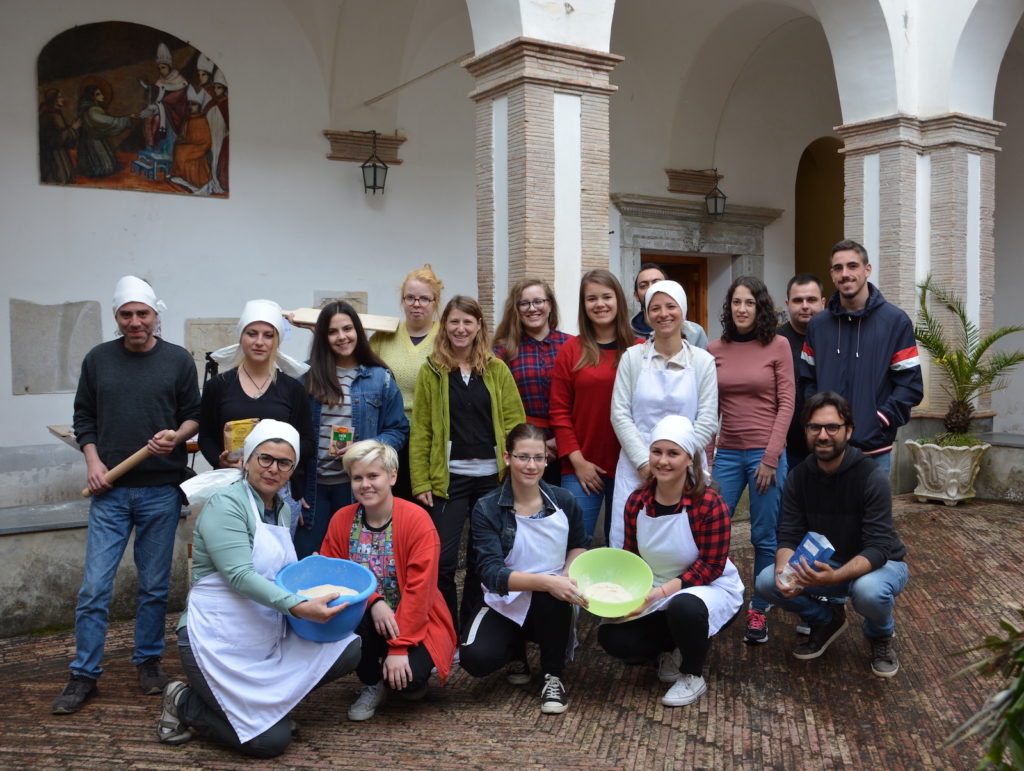
BREADucation was hosted in the Convent of San Francesco, a convent dating back from the end of the 15th century which was now occupied by nuns. The convent is situated in the heart of Polvica, nestled into the mountains with spectacular views. The bright and harmonious courtyard of the convent was where we held the workshops, which created a very tranquil atmosphere.
BREADucation was created to explore the power of wheat products in greater detail. Bread is a basic element of nutrition in many parts of Europe and the Mediterranean. It has played a crucial role in the diet since prehistoric times due to its nutritional value, economical price and the simplicity of the culinary use of its’ main ingredients. After the industrialisation of agriculture and food processing in the whole market, both the ingredients and the methodology of bread making have changed. As a result, so have cultural attitudes with increases in health concerns regarding the food. For this reason, it is important that education around the nutritional value of bread is spread while encouraging the preservation of traditional practices.
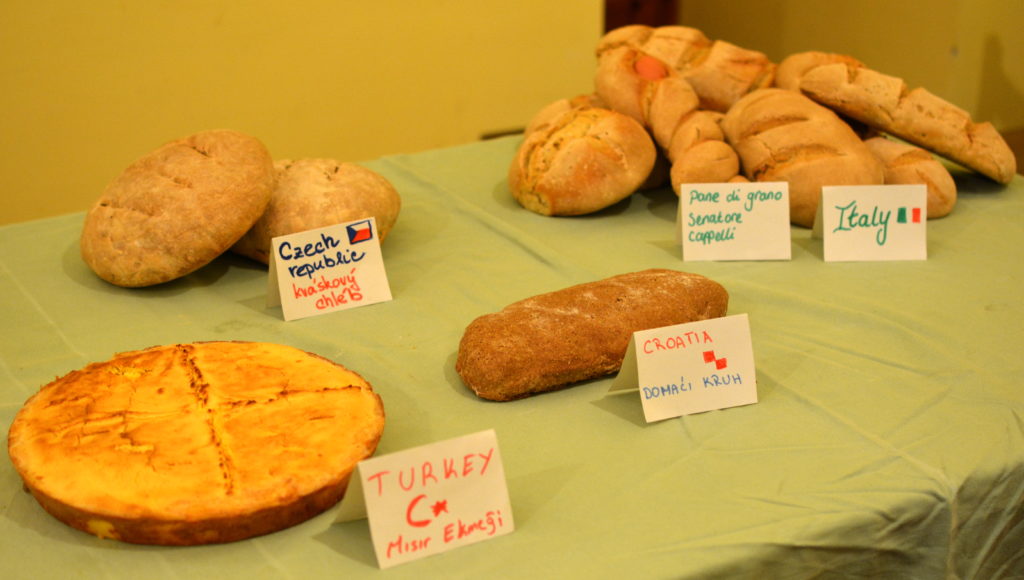
The project created an international experience promoting the exchange of good practices around nutrition and other characteristics of wheat and wheat-based products. During BREADucation, we explored various different methodologies of bread-making and approached potential ideas of social entrepreneurship in the bakery sector. It was a goal to raise awareness about the health and environmental aspects of cereals while also looking at social aspects of this food group in communities.
Prior to their arrival, the participants had researched a traditional bread from their region which they presented to the group during bread-making workshops. Each country created their own baking class in which they shared the ingredients and recipe of their bread showing the rest of the participants how to make it. During the workshops, they also shared other information regarding their bread such as; typical techniques used, variations in the recipes, cultural attitudes towards bread, old anecdotes about baking and even some rhymes or songs passed down from through their families. Vasilis, one of the participants, was a bread-making expert from Greece, who had trained for over 20 years learning to make a traditional Greek bread using ancient practices. Vasilis brought his ancient sourdough, which was more than 200 years old, also called prozimi and he gave a special workshop with a detailed explanation of his techniques and a presentation of the history of his bread.
There were also other activities designed to enhance the non-formal learning process of the project. One of the main outcomes was the development of an educational workshop for children. The participants designed a session for children from the local school of Tramonti, age 11-12, which included; bread making with the Greek expert, a senses test of different foods and other games designed to educate the children about the nutritional aspects of bread. After video taping each countries bread-making workshop, there was a tutorial video created for each bread, as well as an educational tool created by the participants containing all recipes. This material will be freely shared and used for future activities by participants, partner organisations, all our network of contacts and anyone else interested in the topic.
There were many other highlights of the project such as; the intercultural night – when each country shared their typical dishes and drinks -, a trip along the ‘lemon path’ of the Amalfi coast and a visit to a lemon farm to experience local good practices, and the youth pass ceremony on the final evening. Living in the mountains of rural Italy allowed the group to witness how the locals lived around here, how they have adapted to the landscape by cultivating terraces on the mountain sides and how everything runs at a slightly different pace.
Thanks to all of the participants, everyone enriched their knowledge of bread and bread-making as a whole. The group not only accomplished a variety of different bread-making methodologies but they also got to sample and taste the breads. Hopefully, the participants will return to their countries with a fresh outlook on the topic and with motivation to share and inspire others to keep up traditional practices and explore an array of flavour and ingredients. As a final goodbye, participants were given a small piece of ancient sourdough from Greece to continue making healthier bread in their country and share this practice within their organisation and their peers.
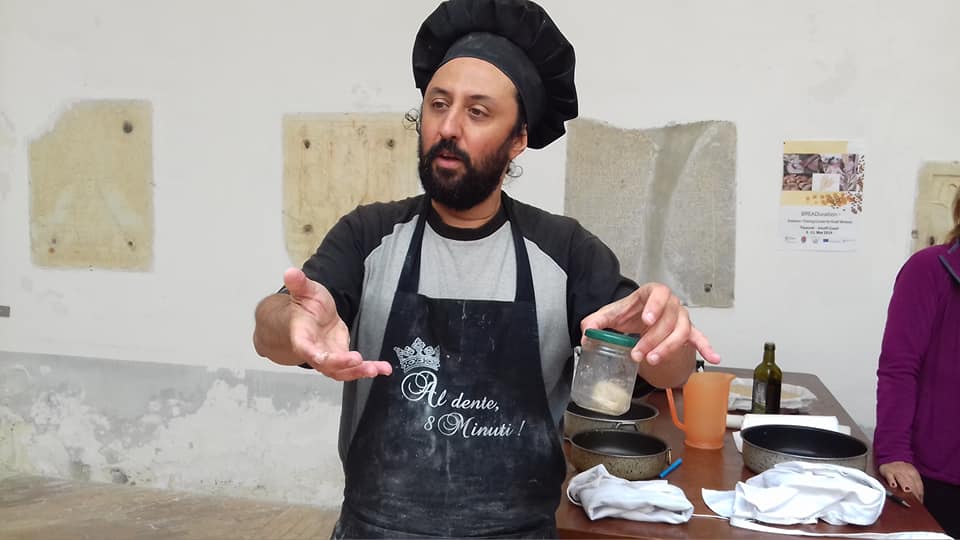
RESULTS
For the results of the project, please visit the website of our partner Club per l’UNESCO d’Amalfi: http://clubunescoamalfi.it/breaducation-results/(si apre in una nuova scheda)
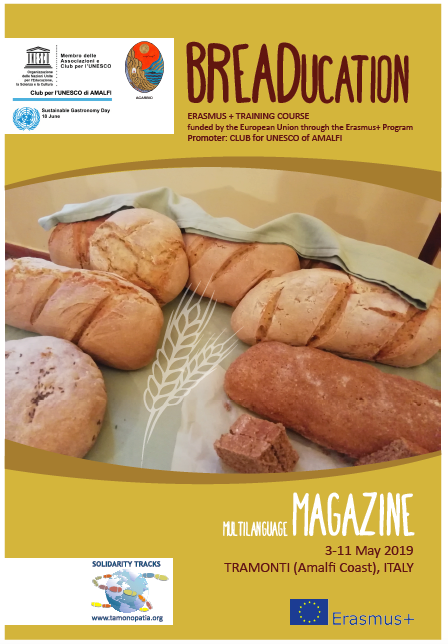
http://www.acarbio.org/wp-content/uploads/2019/06/Magazine-Breaducation.pdf

